The Shuttle System
New Possibilities with Modular Ankle Joints
History
For the longest time, orthotic ankle joints limited motion (plantar- and dorsiflexion) using movement stops without any, or only insufficient, resistance to force. Orthoses with these joints always permitted the maximum allowed dorsiflexion during standing, even though the movement was only necessary for walking. This inefficient standing position required additional muscle force at the knee and hip joints. The first solution to this loss of energy was provided in 1999 with the development of the L carbon spring. While the carbon spring restricted forward movement to taking place during walking only, it unfortunately prevented any plantarflexion. In 2011, the V-joint with power units made, for the first time, an erect standing position possible while allowing plantar- and dorsiflexion during gait.
Further information can be found under "Ankle Joints with Power Units Comparison".
An orthotic system today shouldn’t just support and guide the skeleton. The system also needs to compliment remaining musculature and provide correction if necessary. All forces applied by orthotic knee and ankle joints must be specifically configured to the needs of the patient and then fine-tuned. The Shuttle system was designed to accommodate all patients.
 |
The Shuttle ankle joint provides the framework
to support and guide the skeleton. The adjustable stirrup enables alignment modifications of up to 15° to accommodate any plantar- or dorsiflexion contractures. |
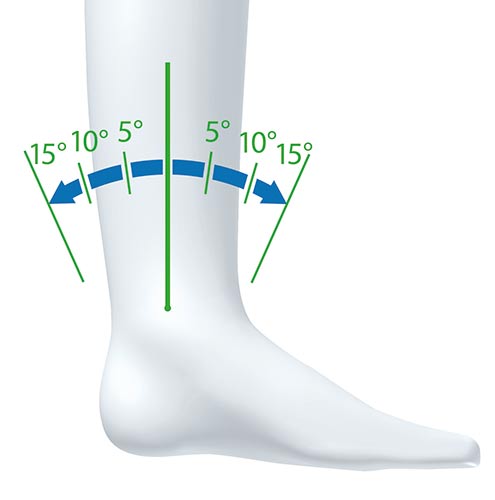 |
| Interchangeable movement stops with a range of motion up to 15° plantar- and dorsiflexion adapt movement to ankle joint conditions. | 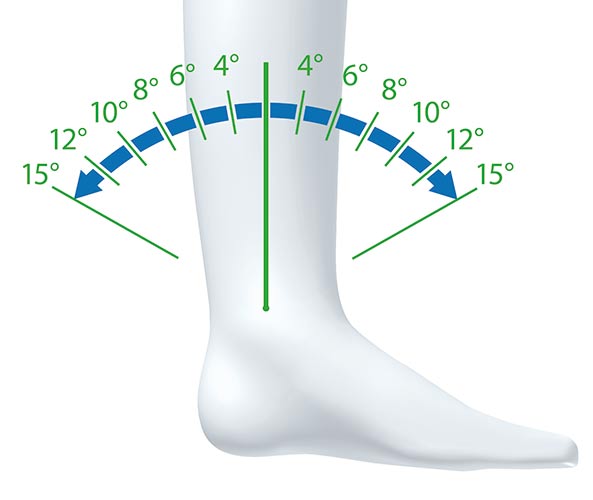 |
Please note:
We strive to construct our joints as small as possible. However, we don’t make any compromises when it comes to durability and function. The more functions an orthotic joint possesses (ensured throughout its lifespan), the larger it will be. The modular design of the Shuttle system opens up more possibilities for the patient and increases acceptance through the ability to change or remove options.
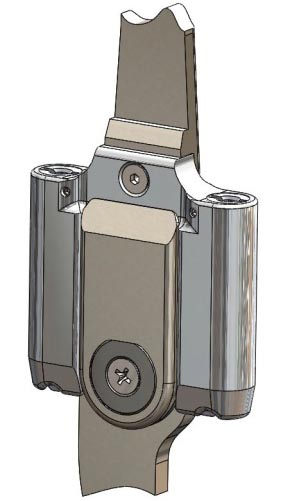 |
Shuttle-Turbo (Turbo option)
Interchangeable power units add resistance to plantar- and dorsiflexion. Force options range from light (blue)→ mild→ medium→ strong (yellow). |
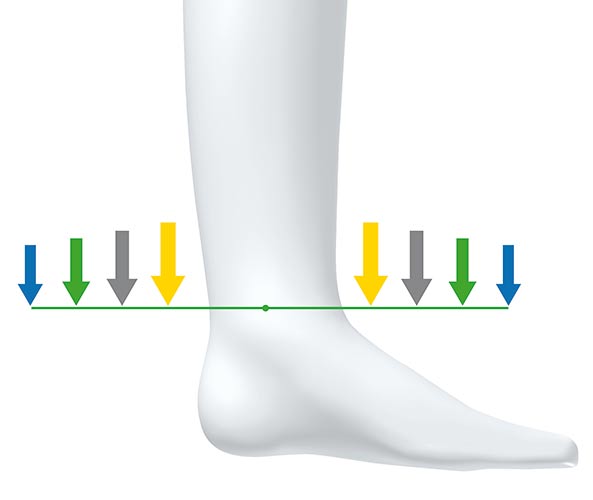 |
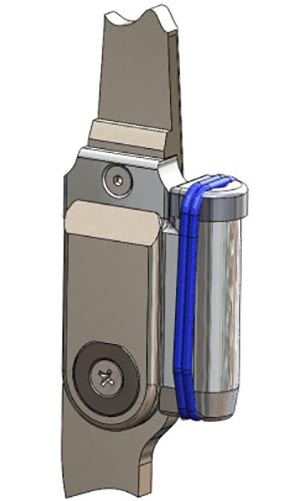 |
Shuttle-Uno-front (Uno-front option)
The anteriorly placed interchangeable power unit supports calf musculature by adding resistance to dorsiflexion. Force options range from light (blue)→ mild→ medium→ strong (yellow). The optional tension bands add light resistance which dampens heel strike and provides dorsiflexion assist during the swing phase (blue arrow pointing up). |
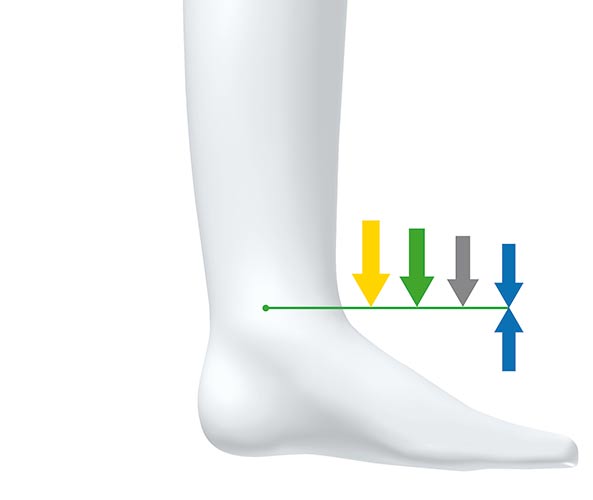 |
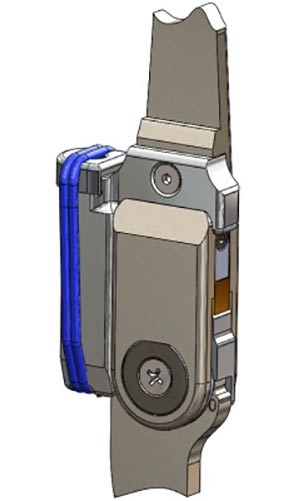 |
Shuttle-Uno-back (Uno-back option)
The posteriorly placed interchangeable power unit provides counter-resistance to a plantar-flexed foot position. Force options range from light (blue)→ mild→ medium→ strong (yellow). The optional tension bands add light resistance which smooth rollover during stance phase (blue arrow pointing up). |
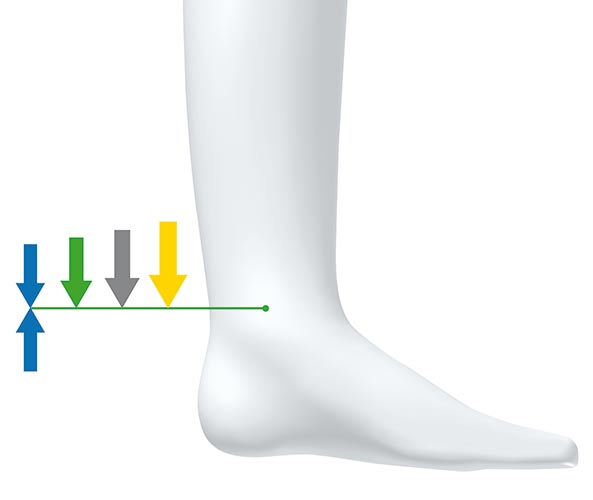 |

